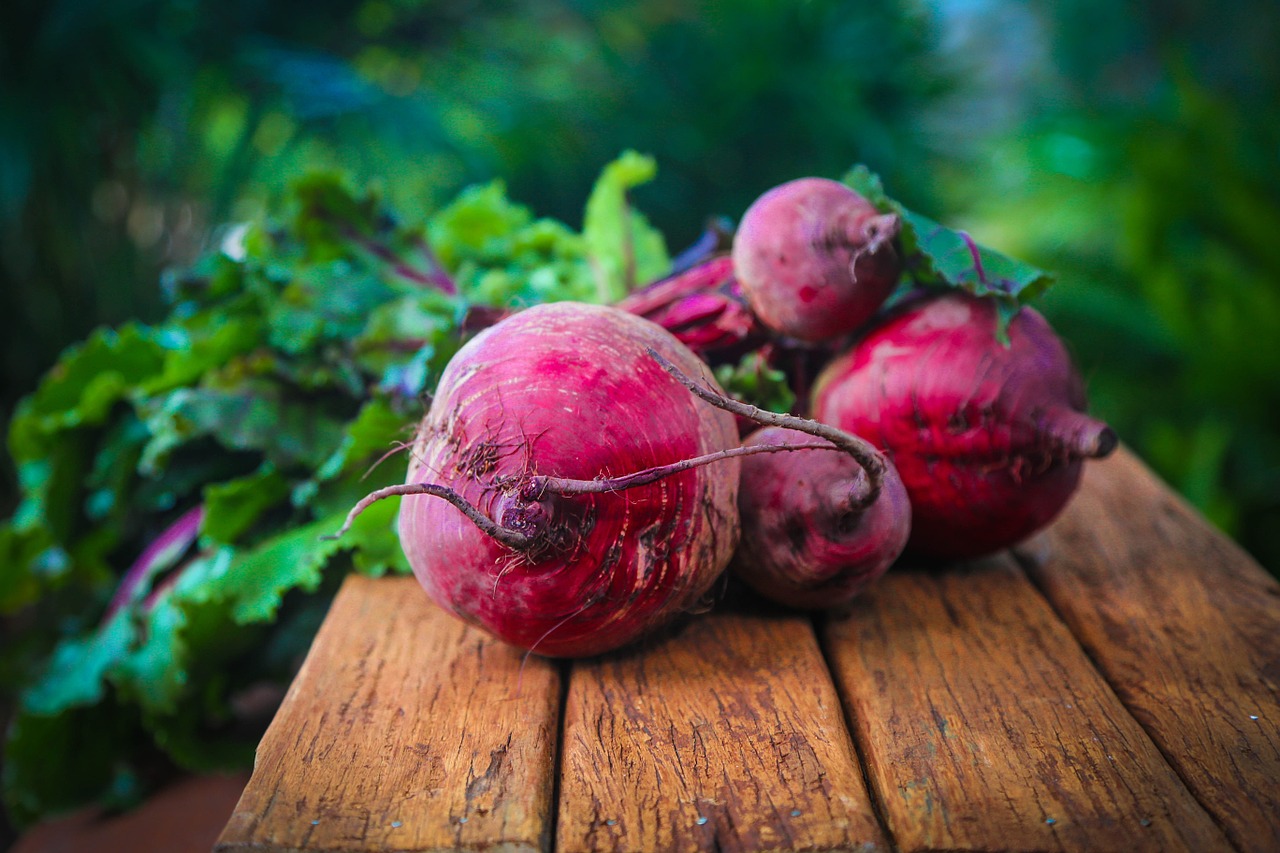
Beets or as some call them, Beetroot, is a vegetable that has gained popularity in the recent years for many health reasons. For a little back history, it belongs to the Chenopodiaceae family, which contains three types of vegetables: spinach, beets and chard. The plant can be traced back to approximately 4,000 years ago, at its first signs of cultivation and have been found along the coastlines of Asia, Europe, and North America. The health benefits provided by the beet root are far reaching thanks to its abundance of vitamins, nutrients, and minerals.
Health Benefits
Beets are chock full of vitamins, minerals, and other compounds like carotenoids, lutein/zeaxanthin, glycine, betaine, dietary fiber, vitamin C, magnesium, iron, copper and phosphorus, while also being a source of beneficial flavonoids called anthocyanins. They are very low in calories, with no cholesterol, but they do have the highest sugar content of all vegetables. They have been known to lessen the symptoms of and/or help prevent macular degeneration, cardiovascular disease, skin problems, anemia, indigestion, dandruff, certain cancers, and many others.
Prevent Certain Cancers: Studies have revealed that beets are good at preventing skin, lung, and colon cancer, since they contain the pigment betacyaninis, which counteracts cancerous cell growth. Nitrates used in meats as preservatives can stimulate the production of nitrosamine compounds in the body which can also result in cancer. Studies have now shown that beet juice inhibits the cell mutations caused by these compounds. Researchers in Hungary have also discovered that beet juice and its powdered form slows down tumor development. Adding a healthy weekly amount of beets to your diet can keep your body cancer-free for a very long time.
Good for Heart Health: Beet fiber helps to reduce cholesterol and triglycerides by increasing the level of HDL cholesterol (“good” cholesterol). Having a high level of triglycerides increases the risk for heart related problems, so increased HDL is a good line of defense against that. The presence of the nutrient betaine lowers the levels of homocysteine in the body which can also be harmful to the blood vessels. Thus, consumption of beetroot helps to prevent cardiovascular diseases in multiple ways, so conditions like ahterosclerosis, heart attacks, and strokes are less likely to develop. The fiber in beets also works to strip excess LDL cholesterol from the walls and help to eliminate it from the body quickly.
Boosts Your Energy: Beets contain a significant amount of carbohydrates that provides fuel for energy and prolonged sports activities. These are the natural building blocks of energy metabolism, and beets provide them without any of the negative side effects of many other carbohydrate-heavy foods. When the body has a sufficient amount of carbohydrates, it is able to fuel all of the necessary bodily functions as well, including the important metabolic reactions that keep your organ systems functioning efficiently.
In a related function, researchers have noticed that oxygen uptake is greatly increased by people who drink beet juice due to the high nitrate content. The results show that oxygen uptake increases by up to 16%, which is an unheard of boost, and is actually more than a normal person can improve by, even when training extensively. This increases stamina for exercising and participating in sports, making beet juice an interesting sports drink that most people would never consider.
Part of the body’s natural digestive process is to detoxify your body through elimination and sweating, so the next time you want to boost your workout or simply get a good cleansing try this tasty juice found off One Million Health Tips.
Beet Juice Recipe for Liver & Colon Cleansing
Ingredients:
6 Kale Leaves
3 Carrots (peeled and washed)
2 Red Apples (washed and cut)
½ Peeled Lemon
½ inch Ginger Root
Directions:
Fill the blender with 1-2 cups of purified (for taste) water, and place all of the ingredients in the blender and blend. Strain juice using a colander and mix with spoon to incorporate. Serve with some ice to keep it cool, or put into mason jars to store for later.
For more information on this you can visit the Organic Facts website.



























